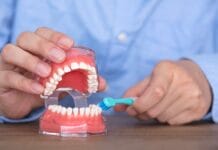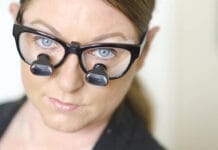Providing dental hygiene care can be one of the most rewarding jobs in health care. When patients find a good hygienist, they tend to stick with them and even begin to look forward to their biannual cleanings.
As a dental hygienist, you form close bonds with many patients, and you feel like part of the family. Sometimes, however, being a dental hygienist can be frustrating. One of the worst parts of the job is dealing with non-compliant patients. Noncompliance can manifest in a variety of ways. Whether it’s refusing x-rays or neglecting home care, each situation and patient is different and can be tricky to deal with.
Reasons for Not Being Compliant
Patients can be non-compliant for many different reasons. Often, they may not fully trust their provider. Unfortunately, there have been dentists and hygienists who don’t put their patients’ best interests as a top priority. As a result, offices have been put on the front-page headlines for committing insurance fraud, patient neglect, faulty treatment, and malpractice in general. The unethical providers who have been caught and publicly shamed put a bad taste in patients’ mouths about dentistry in general.
This makes it even more challenging for ethical providers to recommend and provide treatment. In an ideal world, patients wouldn’t have to worry about being scammed by their oral health care provider. Because patients are leery of proposed treatment, many tend to refuse on the basis of trust. Establishing trust with each patient can lower the instances of noncompliance. If patients understand that the proposed treatment plan is beneficial to them and not just to the office, they tend to comply.
Why OHI is a Good Service
Another reason for noncompliance can be a lack of dental education. I’m sure we’ve all heard the common misconceptions patients have of oral health: bad teeth run in my family, fluoride is poisonous, x-rays cause cancer, flossing makes my gums bleed, etc. We all roll our eyes over these types of statements that we hear daily.
We get upset when a patient refuses treatment or neglects a proposed home care regimen, but are we doing our part to ensure that our patients understand why we proposed it in the first place? You can quickly give them a one-liner to try to contradict their reasoning for refusal, but if you don’t actually explain the treatment, what’s the point? I’m no stranger to the time constraints on dentistry but skipping out on proper OHI is an extreme disservice to you and the patient.
For example, if a patient says they don’t floss because it makes their gums bleed, explain how flossing (cleaning interdentally) actually works. You can tell them that healthy gums don’t bleed, but don’t leave it at that. We all learned about the body’s immune response in school and how plaque and calculus affect it. You don’t have to recite a thesis on the particulars of it, but at least give a simple, clear overview of it. Let them know that plaque is a foreign substance to the body, so it responds by sending white blood cells to the gums to try to fight the plaque. Because of the increase in cells in the tissue, inflammation occurs. The pressure from flossing releases these cells and bleeding occurs. Until the plaque has been removed and the immune system doesn’t detect a threat, the gums will continue to bleed upon contact because of the inflammation.
Reinforce the fact that good home care, which includes brushing and cleaning interdentally, prevents the gums from bleeding. Taking the extra few minutes to thoroughly explain a concept to a patient can help to better educate them on the benefits of proposed treatment.
Getting Around the Cost Factor
Noncompliance can also result from a lack of insurance or needed funds for treatment. We’ve all heard patients say that they only want what their insurance covers or that they don’t have the money to pay for treatment out of pocket.
Oftentimes, patients neglect necessary treatment, whether they agree with the treatment or not, for this reason. I have had many patients who really want to stay on top of their oral health by having routine x-rays taken, but they can’t always afford to pay for the x-rays as often as insurance would normally cover them.
Unfortunately, money is a multi-dimensional concern for patients, and there is rarely a simple fix. If a lack of insurance or payment out of pocket is the reason for noncompliance, setting up an option for a payment plan might be the best solution for the problem. Most hygienists probably aren’t the ones who determine payment policies for the office. But if payment seems to be a common concern among your patients, consider speaking to your dentist or office manager about implementing a system that allows patients to pay for treatment at set intervals.
Always Anxious
The last reason for noncompliance is dental fear or anxiety. I can’t tell you how many times I’ve seated a patient, and the first thing they say to me is, “I hate going to the dentist.” It may seem like a silly fear, but it’s a big enough reason to keep many people away from the dental office.
Dental anxiety presents itself in many different ways, but it mostly stems from a lack of dental education. Again, taking the time to explain the details of the proposed treatment can help ease the fear of the unknown.
I am a detail-oriented person, and I tend to be an over-planner. I have found that if I know all the details of the situation, I have less anxiety about facing a new or scary experience. While explaining the treatment may not fully alleviate all fear, it certainly can help. Showing the patient that you understand their anxiety and are there to help them get through the treatment to attain better oral health means a lot to patients.
Noncompliance can present in many ways. While some reasons for refusal have a simple solution, others require more attention to resolve. As a general rule, many instances of noncompliance can be resolved by communicating with the patient and taking the time to discuss concerns, questions, and details.












